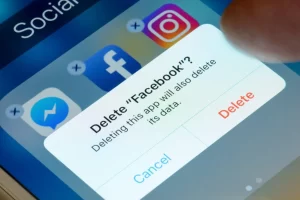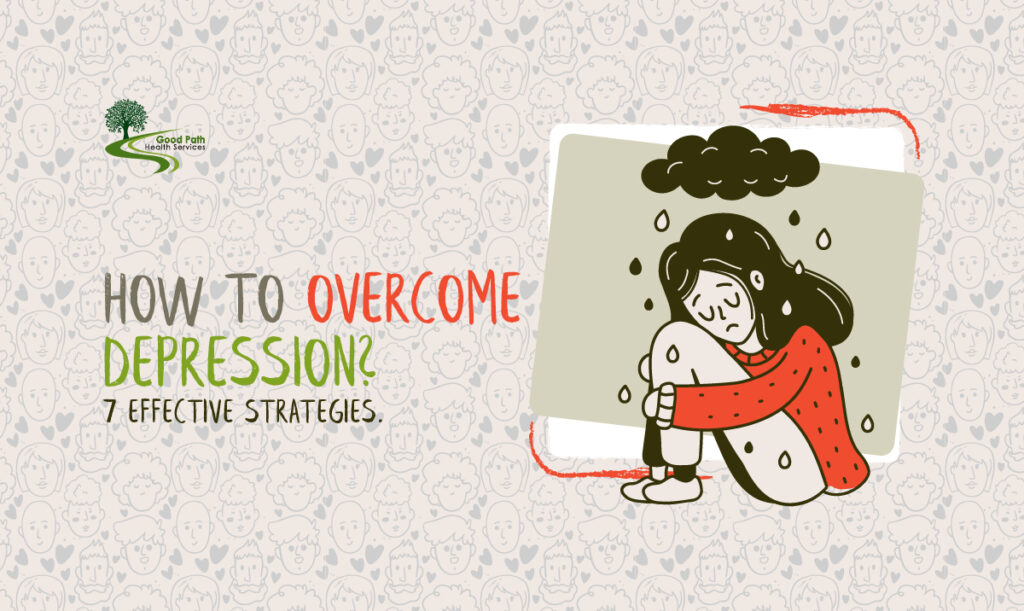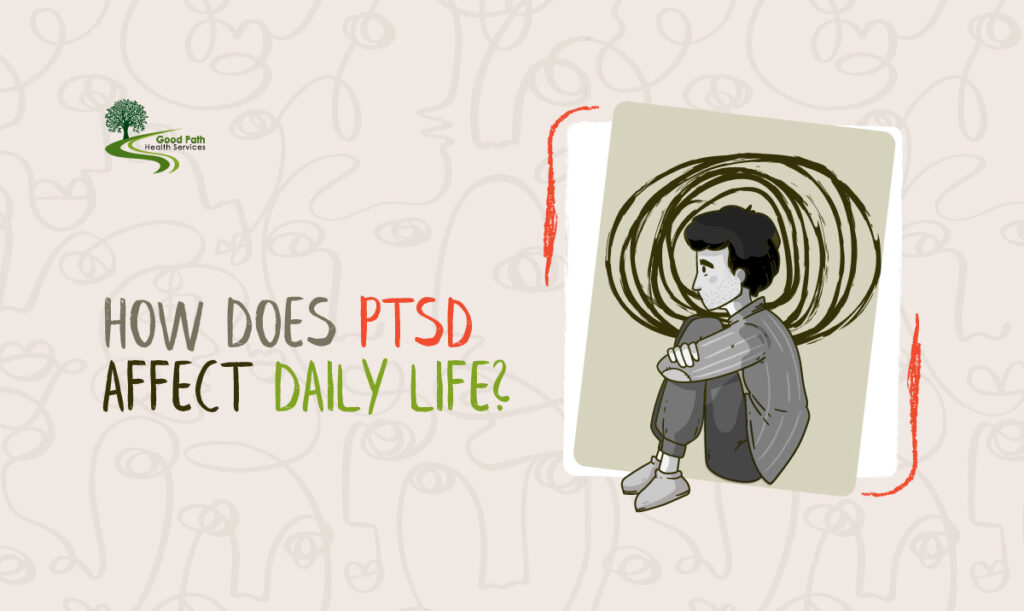
Deleting social media doesn’t always mean you’re depressed, but it could mean you’re going through a hard time and need support.
Nowadays, disconnecting leaves us wondering about the connection between social media and mental health.
It’s important to understand the reasons behind unplugging from social media and how it might indicate the need for help during hard times.
So, in this blog, we’ll explore the important question, “Is deleting social media a sign of depression?” and the reason why people take breaks from social media and what it might mean for their mental health.
Reasons for Deleting Social Media
01. Comparison.
The carefully curated highlight reels on social platforms like TikTok or Instagram can make people feel inadequate and insecure about their lives.
Scrolling endlessly through the seemingly perfect lives of others can cause immense self-doubt and fuel comparative thinking.
Also, often, looking at others’ photos can cause low self-esteem and body acceptance issues.
Comparing all the time is not only unhealthy; it can damage mental health—and cause stress, anxiety, and even feelings of depression.
02. Information overload.
Continual exposure to curated information causes overload, overwhelm, and fatigue on an emotional level.
Often, there is negative content and depressing images on social platforms that can trigger bad emotions, anxiety and depressive feelings.
Which could be one of the reasons why someone would want to delete their social media to avoid being overwhelmed.
No social media usage can sometimes be a conscious decision to de-stress and clear the mind.
03. Unproductivity.
Getting too many alerts and notifications from social media can cause distraction and make it hard to concentrate on work and tasks.
When notifications keep appearing, it gets hard to stay focused.
Spending too much time on social media can detract one from more important priorities.
04. Less time for self-reflection.
Being constantly immersed in social media can leave little room for introspection, another word for self reflection.
Almost all available time is consumed by online interactions, leaving no time to reflect on identity, thoughts, and actions—the things that are essential to one’s personal development.
It can feel super depressing at times.
Sometimes, a break from social media helps one to reconnect with theirself and take a breather.
05. Cyberbullying.
Social media platforms are often used for cyberbullying, where people experience harassment, humiliation, or exclusion online.
There can be many forms of cyberbullying—mean messages/tweets, dissing, outing/doxxing, cyberstalking, trolling, roasting, and more.
This can leave the victims feeling terrified and desolated.
Cyberbullying is associated with many mental health issues, including anxiety and depression.
Victims might start avoiding the internet or social media because of the fear of facing more harassment.
06. Privacy issues.
Social media is a nice way to connect with close ones, but it also means revealing much personal information.
Social media collects a lot of data from users.
People can obtain your information easily, which can put your privacy at risk.
Social media accounts can also be hacked and compromised, which causes data breaches.
If that happens, the hacker gets access to private information.
The thought of that can be nerve-wracking for people.
07. Sleep problems.
Spending too much time on social media can cause sleep deprivation, which can contribute to depression.
The blue light coming from screens can interfere with the body’s natural sleep cycles and interfere with your sleep, which in turn can have negative effects on mental health.
Some people limit screen time and don’t use their phones before bed, however, some also delete social media to avoid addiction, overuse and constant checking.
Deleting social media can be a conscious decision people make sometime to priotize their wellness.
If you want to learn more about the connection between social media and mental health, please visit HelpGuide.org.
What Are Other Indicators of Depression Beyond Social Media?
These can be indicators of depression to watch for:
- Changes in mood and emotions, like irritability, constant sadness, or abrupt mood swings.
- Changes in energy levels, especially too much fatigue or restlessness.
- Disruptions in sleep, like not being able to fall asleep, staying asleep, or excessive sleep.
- Shifts in social behavior, for instance, avoiding social activities, being alone, or becoming less social. In depression not wanting to socialize can be an indicator.
- Being hopeless about the future or lacking motivation all the time.
- Having no interest in activities that used to interest you.
- Appetite changes.
- Not being able to focus, make decisions, or concentrate on tasks.
Can Taking Time Off from Social Media Benefit Mental Health?

Yes, a digital detox can always benefit one’s mental health.
This is how:
- In a study from 2018—itwas discovered that using social media for only about 30 minutes each day made people feel less lonely and depressed.
- In a study from 2020, people were asked not to use social media for a week. After that week, they felt a lot better mentally and more socially connected to others.
Without realizing it, excessive use of social media can lead one to a downward spiral and bring despair and depression at times.
If you want to make some adjustments to your social media use, here’s what you can do:
- Set boundaries. Schedule specific times to engage online and make time for offline interactions.
- Use an app to track your screen time.
- Always be mindful of the content you engage with. Make sure you unfollow accounts that trigger negative feelings.
- Create an online space to encourage positivity.
To Conclude
The decision to delete social media isn’t necessarily an indication of depression, but could be a sign that someone might be going through difficulties.
People can choose to disconnect because of reasons like comparison with others, information overload and overwhelm, concerns about privacy, cyberbullying, and sleep problems and more.
Stepping away from social media can have many mental health benefits as well.
If you have questions or need professional support, speak with a licensed therapist at Good Path Health Services today.
FAQs
The vicious cycle of depression is often initiated by what?
Here’s what the cycle of depression can be initiated by:
- Trauma.
- Negative thought patterns.
- Chronic stress.
- Chemical imbalances in the brain.
- Life events.
I’m tired of fighting depression. What should I do?
Please reach out for professional support. A licensed mental health expert can help you learn coping ways, and provide guidance on ways you can heal.
What is the treatment plan goal for depression?
The goal of a treatment plan for depression is usually to:
- Reduce your symptoms.
- Improve day-to-day performance.
- Help you find joy.
Treatment can include therapy, medication, lifestyle adjustments, and support systems—based on your needs.
Is romanticizing depression normal?
No, romanticizing or glorifying the experience of depression is harmful and not healthy.
Depression is serious mental health condition and one should get proper treatment for it.
What is self blaming depression?
Self-blaming depression is when people with depression are hard on themselves and blame themselves for problems or not being good enough.
They might see themselves as the cause of everything that goes wrong.
How can I find counseling for depression near me?
- Search online for counselors, you can check online directories.
- You can also ask your doctor if they can recommend a mental health counselor.
- Ask your friends for suggestions.
Many mental health professionals list their services online, so you can easily find local counseling services.
Good Path Health Services also provides psychotherapy and counseling, you can reach out to us today.
What are some journal prompts for depression?
Some journal prompts for depression can be:
- What emotions am I experiencing right now?
- In what ways have I shown myself kindness today?
- What is something I’m looking forward to?
- Write down positive affirmations that speak to you.
What’s stimulant vs depressant?
They both fall into two categories of psychoactive substances.
Stimulants (caffeine or amphetamines), increase focus and energy. Depressants (alcohol or sedatives), slow down brain activity or induce relaxation.



